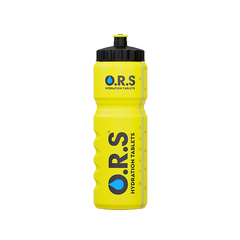Dehydration And Poor Concentration: Is There A Connection?

The ability to concentrate and focus on the task at hand is essential for safely navigating everyday life, whether that’s driving through rush hour traffic or meeting work or study demands. However, there always seem to be some days when we feel like we are wading through treacle and everything takes more time and effort than it should.
Often, we might put this down to poor sleep and a busy lifestyle. However, there is a very common cause for brain fog that is often overlooked: dehydration. Our bodies are composed of over 70% water, and it doesn’t take much for the balance between the fluids we take in and those we lose through breathing, sweat and eliminating waste to become skewed.
According to the NCBI, even mild dehydration with a body water loss of 1-2% can impair cognitive function and also cause fatigue. More severe dehydration can even cause the brain to shrink and alter the structure of the brain tissue. This not only causes headaches but can affect concentration levels.
Dehydration is also linked to a broader decline of cognitive function, consisting of critical thinking, concept learning, and memory processing. This can mean an individual finds it hard to make decisions or complete tasks. It can also cause difficulty with problem solving and impact creative thinking, which can affect academic or work performance.
Dehydration can also impact judgement, motivation, mood, reaction times. This can make a person more anxious and irritable, and more likely to make mistakes or have lapses of judgement. Chronic dehydration can also cause fatigue, making it difficult to stay alert and focused on the task at hand.
Tips for boosting your concentration and optimising hydration levels
The most obvious step to staying hydrated is to drink water on a regular basis throughout the day. Many of us wait until we are feeling thirsty before drinking a glass of water, but thirst is a sign that we have already become dehydrated.
Therefore, it’s best to be proactive and sip water at regular intervals, even if you don’t feel especially thirsty. If you find it difficult to remember to drink, try setting a timer to remind you. Keep an eye on the colour of your urine as well; a pale yellow colour is a sign that you are drinking enough and dark urine may mean you need to up your fluid intake.
Once we have entered a dehydrated state, simply drinking more water is not always the instant solution that you might assume. This is because the body has also lost electrolytes through sweat and other bodily functions.
Electrolytes are essential vitamins and minerals such as potassium, calcium and magnesium that play a vital role in the functioning of the body. They help maintain the body’s natural fluid balance, and make it faster and easier for the body to absorb water when it needs to.
Therefore taking electrolyte tablets can be beneficial when you have become dehydrated and are struggling to maintain concentration and energy levels.

